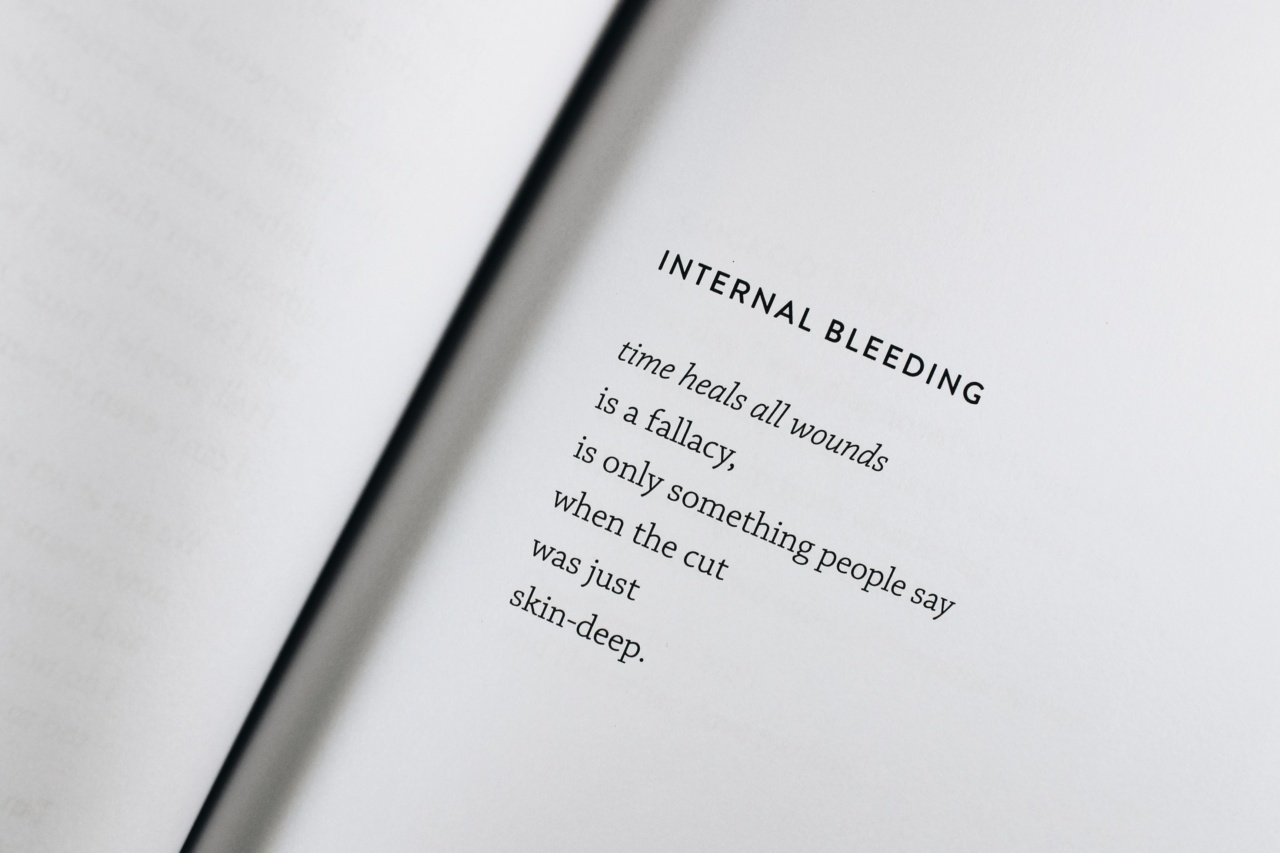Wound healing is a complex process that occurs in the body to repair damaged tissues. It involves a highly coordinated series of events, including inflammation, tissue formation, and remodeling.
While wound healing usually progresses smoothly, certain factors can hinder the process, leading to delayed healing. Interestingly, research has shown that wound healing can be influenced by the time of day, with slower healing rates observed during the nighttime.
In this article, we delve into the factors that contribute to delayed wound healing at night and explore potential strategies to promote faster healing.
The Circadian Rhythm Connection
The human body follows a natural daily rhythm known as the circadian rhythm. This internal clock influences various physiological processes, including sleep-wake cycles, hormone production, and immune function.
Recent studies have revealed that the circadian rhythm also plays a role in wound healing. A disruption in the circadian rhythm, such as during night shifts or jet lag, has been associated with impaired wound healing. This suggests that the body’s internal timekeeping system modulates the healing process.
Melatonin and Wound Healing
One key factor implicated in delayed wound healing at night is melatonin, a hormone primarily produced by the pineal gland during darkness.
Melatonin plays a crucial role in regulating sleep patterns and has been shown to exhibit antioxidant and anti-inflammatory properties. However, high levels of melatonin at night can suppress the immune response, compromising the body’s ability to fight off infections and heal wounds efficiently.
Temperature and Blood Flow
Another factor that affects wound healing is temperature. It has been observed that body temperature tends to drop during the nighttime, which can lead to vasoconstriction and decreased blood flow to the injured area.
Blood carries essential nutrients, oxygen, and immune cells necessary for the healing process. Insufficient blood flow to the wound site can delay tissue repair and prolong inflammation.
Nighttime Sleep Quality
Quality and duration of sleep also play a significant role in wound healing. During sleep, the body undergoes various restorative processes, including tissue repair.
Disrupted or inadequate sleep patterns can interfere with these regenerative mechanisms and impair wound healing. Additionally, poor sleep quality is associated with increased levels of stress hormones, which can further impede the healing process.
Hormonal Fluctuations
Hormonal imbalances can influence wound healing, and these fluctuations often occur during different times of the day. Cortisol, a stress hormone, follows a distinct diurnal pattern with higher levels in the morning and lower levels at night.
Elevated cortisol levels can impair collagen synthesis and weaken the immune system, both of which are critical for wound healing. Similarly, growth hormone, responsible for tissue repair and regeneration, is primarily released during deep sleep. Disturbances in these hormonal patterns can contribute to delayed wound healing at night.
Reducing Delayed Wound Healing
While delayed wound healing at night may present challenges, certain strategies can be employed to promote faster healing. Here are some potential approaches:.
1. Optimize Sleep
Creating a conducive sleep environment and establishing a consistent bedtime routine can improve sleep quality. Ensure your sleep environment is quiet, dark, and comfortable.
Avoid electronic devices before bed, as the blue light emitted can disrupt sleep patterns. Additionally, practicing relaxation techniques, such as deep breathing or meditation, can promote overall relaxation and enhance sleep quality.
2. Manage Stress
Stress can impede wound healing, so it is essential to adopt stress management techniques. Engaging in regular exercise, practicing mindfulness, or seeking support from friends, family, or professionals can help reduce stress levels.
Additionally, incorporating stress-reducing activities into your daily routine, such as yoga or hobbies, can positively impact wound healing.
3. Enhance Nutrition
Good nutrition is vital for wound healing. Increase your intake of vitamin C, protein, and zinc, as these nutrients are essential for collagen synthesis, immune function, and tissue repair.
Include foods rich in antioxidants, such as fruits and vegetables, to support the body’s natural healing mechanisms. Consult a healthcare professional or dietitian for personalized nutritional guidance.
4. Optimize Wound Care
Proper wound care is crucial for promoting optimal healing. Keep the wound clean and moisturized, adhere to any prescribed dressings, and follow your healthcare provider’s instructions regarding wound management.
Regularly monitor the wound for signs of infection, such as increased redness, warmth, swelling, or pus, and seek medical attention if necessary.
5. Consider Chronotherapy
Chronotherapy involves timing medication administration based on the body’s circadian rhythm. By taking certain medications or treatments at specific times of the day, it is possible to enhance their effectiveness.
Considering chronotherapy for wound healing could involve adjusting the timing of specific medications or therapies to maximize their impact during the body’s peak healing periods.
Conclusion
Delayed wound healing at night can be attributed to various factors, including the circadian rhythm, melatonin levels, temperature fluctuations, sleep quality, and hormonal imbalances.
While it presents challenges, implementing strategies to optimize sleep, manage stress, enhance nutrition, and practice proper wound care can help promote faster healing. Additionally, exploring the concept of chronotherapy may offer further insights into harnessing the body’s natural healing rhythms.
By understanding the complexities behind delayed wound healing at night, individuals and healthcare professionals can work together to develop effective interventions and improve healing outcomes.






























